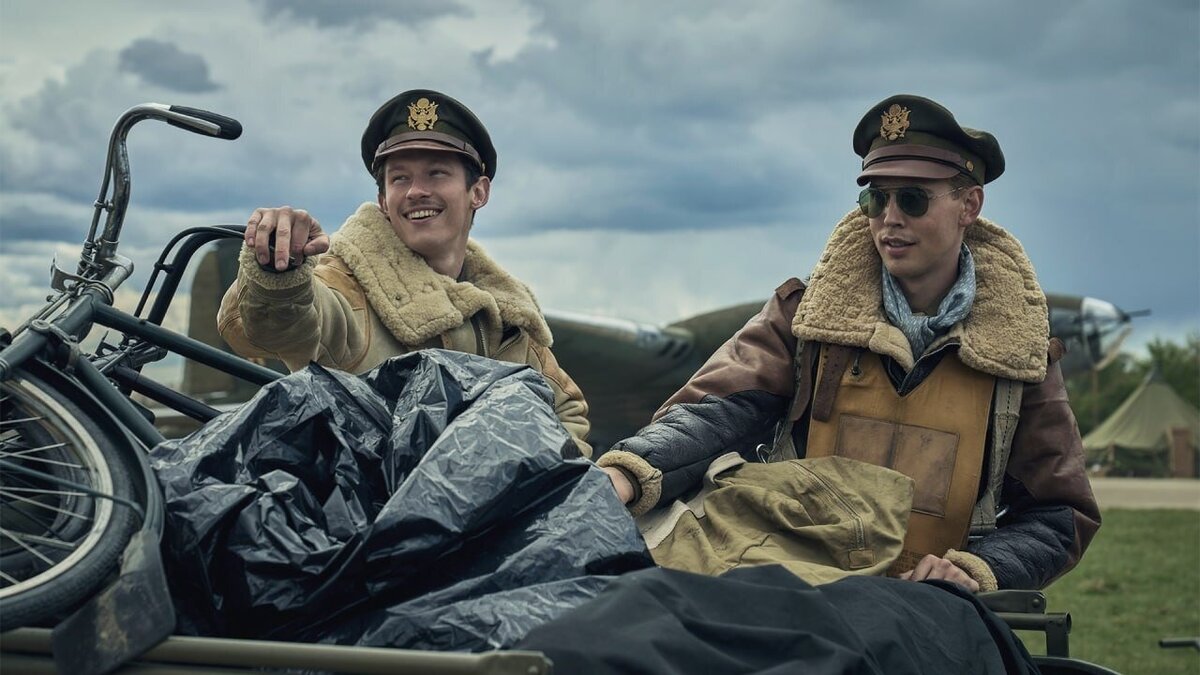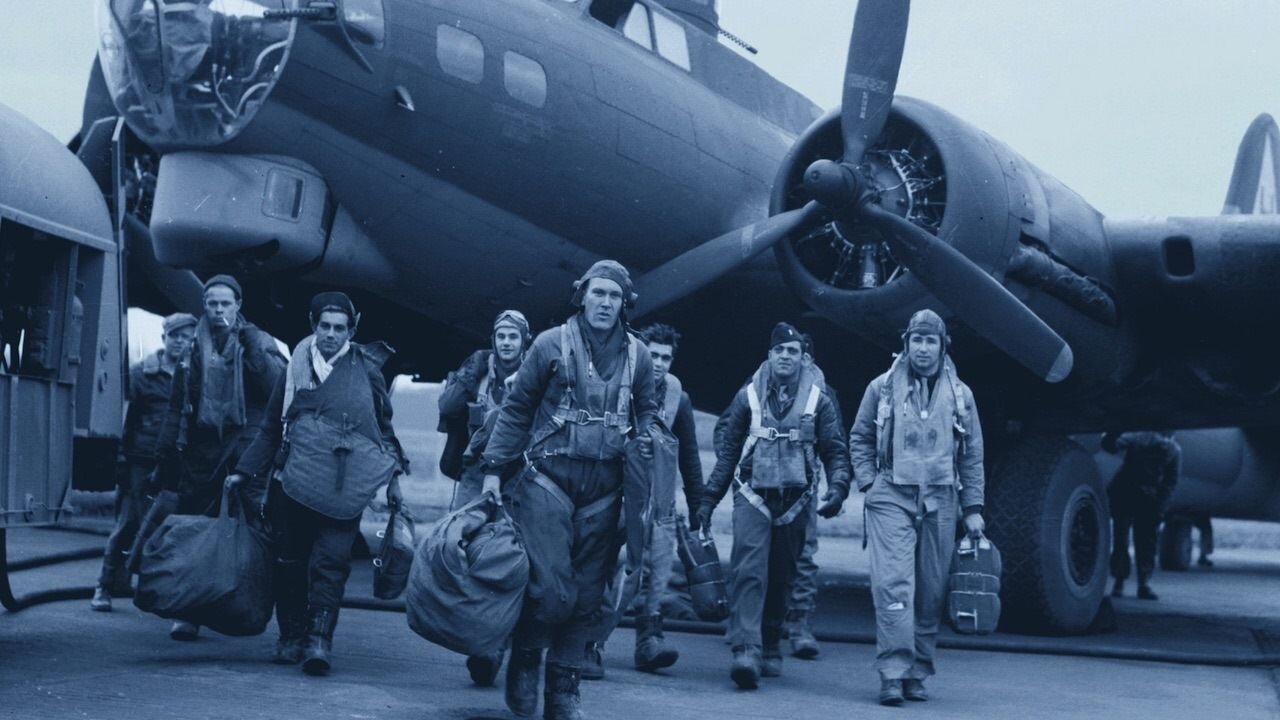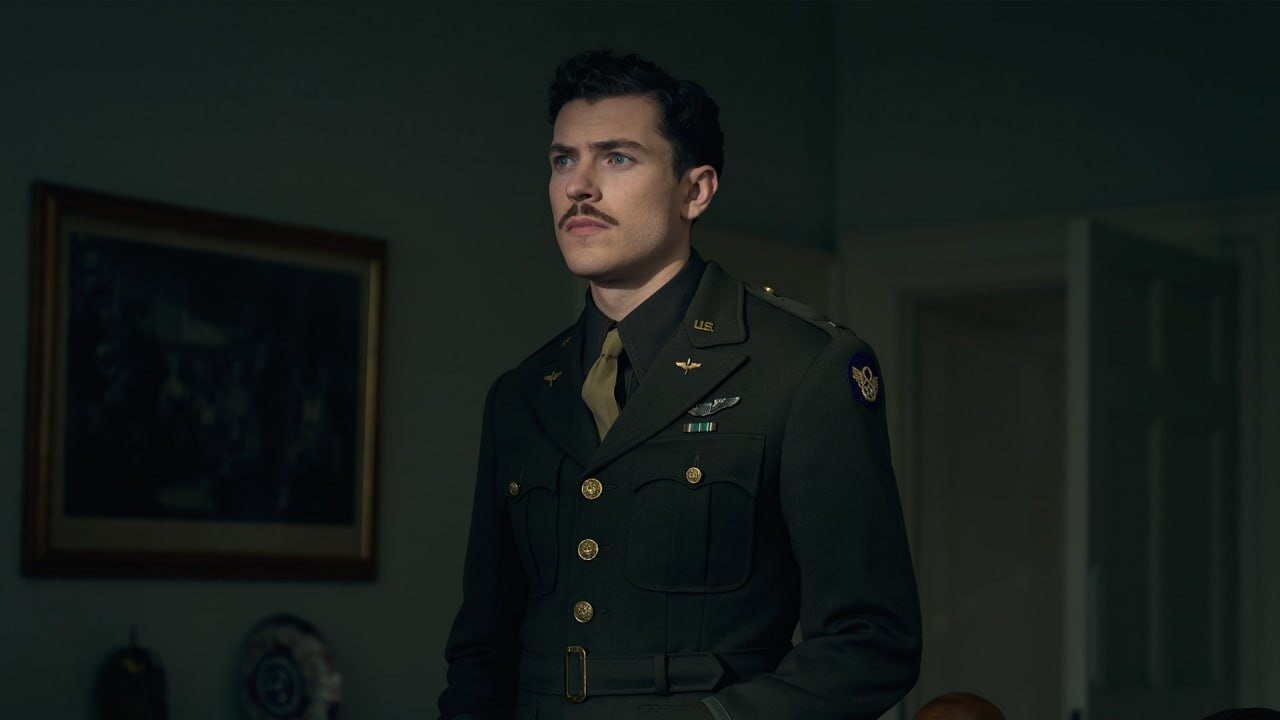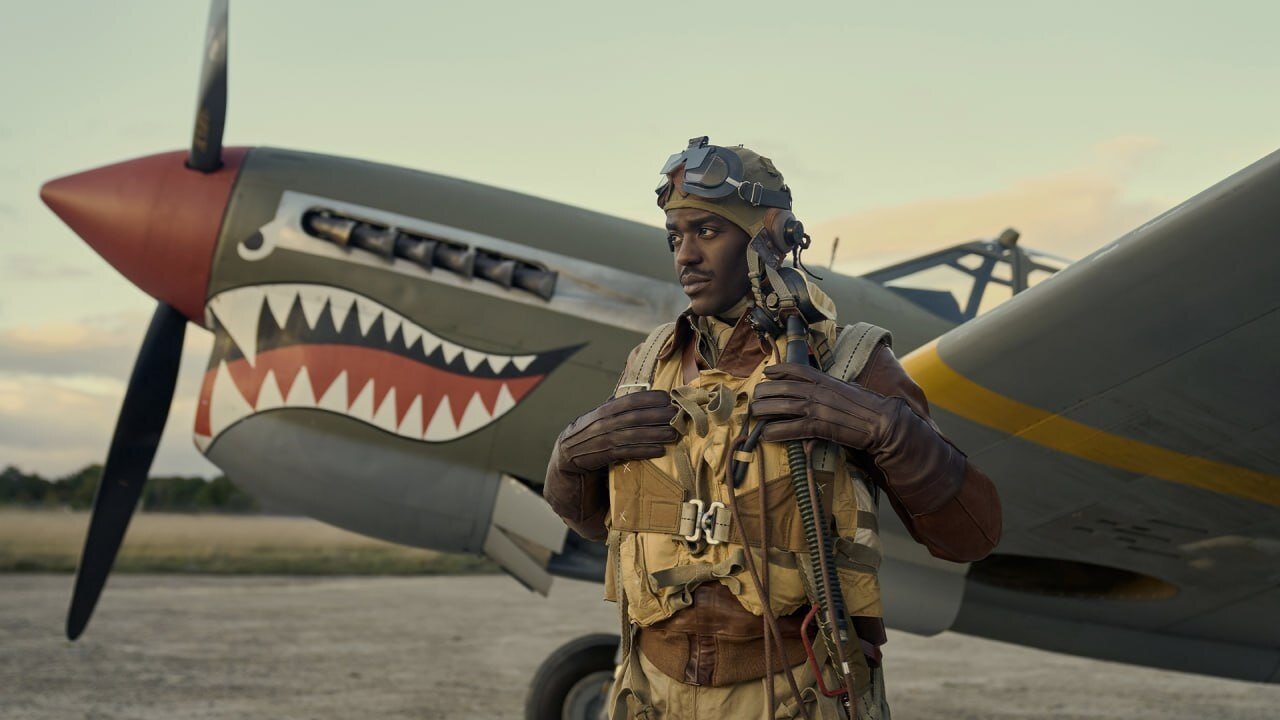«Masters of the Air» - Series Review by Kinoafisha

The pilot brothers: an epic series by Steven Spielberg about a group of bombers.
In the early 2000s, Steven Spielberg, Tom Hanks, and Gary Goetzman produced the war mini-series "Band of Brothers," which immediately became the standard of the genre. Ten years later, they repeated the same trick with the series "The Pacific," this time telling the story of the battles on the Pacific front of World War II. Following the same pattern, they tackled the final part of this trilogy, which was dedicated to the American bomber pilots based in Eastern England. The project started in 2012, and since then the series has changed networks from its original home on HBO to Apple TV.
However, Steven Spielberg and Tom Hanks remained true to the recipe — taking a documentary book as a basis (this time written by historian Donald L. Miller), adding an impressive cast, and mixing it all in a restrained, patriotic tone.

"Masters of the Air" is a multifaceted story, although probably not to the same extent as "Band of Brothers" – after all, there are far more infantry soldiers than pilots. The main characters are the four pilots: Robert "Rosie" Rosenthal (Nate Mann), Gale "Buck" Cleven (Austin Butler), his best friend John "Bucky" Egan (Callum Turner), and navigator Harry Crosby (Anthony Boyle), whose voice guides the narration. The "generations" of pilots – in a figurative sense – change over the course of several episodes. A couple of combat flights are enough to knock the youthful arrogance out of the graduates of flight academies and turn them from greenhorns into veterans.
The inseparable friends – the incredibly calm Buck and the impulsive Bucky – quickly change their tiresome bravado into a mask of cynicism, underneath which lies sobering and unwavering fear. The action takes place in 1943, when the Luftwaffe had air superiority over the English and Americans, so each sortie into continental airspace threatened with heavy losses.

In moments when it is not describing missions, "Masters of the Air" focuses on friendship, parties, dances, and intrigues, providing a break from the constant danger the heroes face. Cary Joji Fukunaga, who directed the first four episodes, as well as other directors, managed to convey both the nervous, tense fun that reigns in the 'earthly' scenes, and the juicy, animalistic action of the battle scenes with virtuosic aerial choreography.
"Masters of the Air" is pleasantly old-fashioned. Despite the remarkable work with imagery and sound (you feel the full weight of gravity with every roaring takeoff of an airplane and the gasping engine shutdown), at the center of the series is still fragile human life. There's an appreciation of technology, but it does not dominate over the human element. The heroes' fears of the world look brighter and more distinct (not least thanks to the performances of Boyle, Mann, Butler, Turner, and other wonderful actors, among which it is worth highlighting another noticeable role by Bel PauIi).

The finale of "Masters of the Air" is full of hope. It's as if they are flying into a beautiful, peaceful future, but that future has not yet arrived - the real Buck, as the final credits report, continued to serve and fight in Korea and Vietnam."
